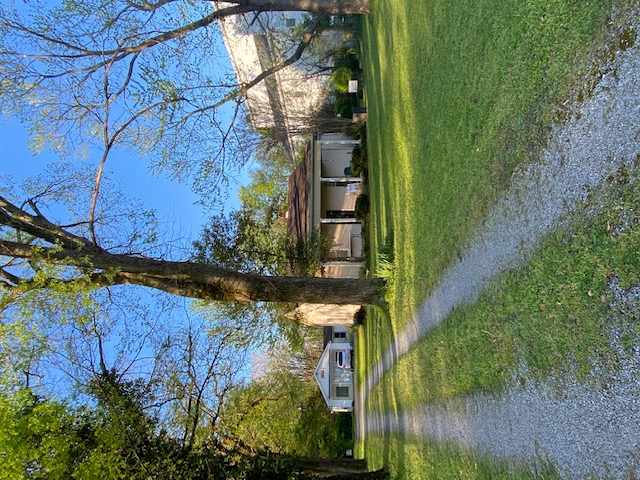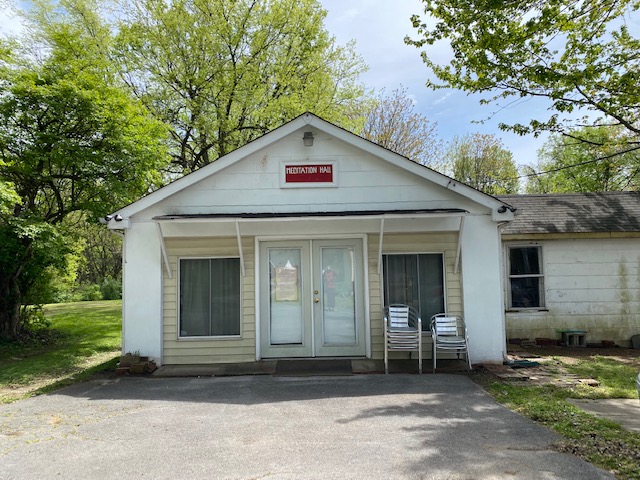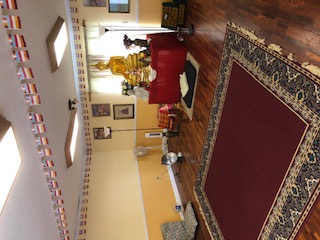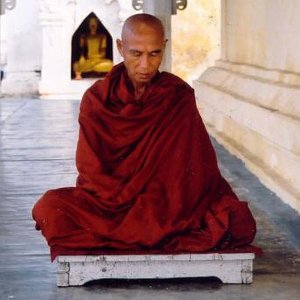I'm New: Questions and Answers
Where are you located?
We are a small neighborhood facility on 4 acres at 99 Lyle St., Nashville, Tennessee, 37219: a house and a large garage remodeled into a meditation hall. Directions are on our contact page.
How about parking?

Drive up the small driveway past the left side of the house and park in front of the mediation hall. Knock on the back door of the house for assistance, or call 615-271-1711. If the meditation hall is unlocked feel free to enter.
What do you do at the Nashville Buddhist Temple?
The temple is in a process of reorganization and our activities are expected to grow in the coming months (this writing is 4/29/2022). The temple currently houses two to three monks, supports a Sunday meditation program, offers occasional classes, is developing a library and provides opportunities for devotional practice, recitation of scripture and merit making. We offer individual training or teachings on request and accept invitations to lecture or offer blessings. A way to become quickly integrated into the growing community is to make offerings, particuarly meal offerings, to the monks. Monks do not charge for services we provide, but are rather strictly dependent on the generosity of others, on alms, for our material support. We plan to offer community events on special occasions: Buddha's birthday, Burmese New Year, etc.
At this time we are interested in knowing what programs you would like us to support. If the demand is there, we will try to support them. Options under consideration are:
- Daily meditation. Morning or evening, many people like to sit a period with other practitioners before or after work.
- Weekly Dharma study. This might take the form at each meeting of a group reading and discussion of a discourse of the Buddha.
- Public chanting services. Currently the monks chant in the Pali language (regarded as the language of the Buddha) every evening at 8pm. Although others are welcome to join us (just ask), we could arrange for periods of chanting in English.
Or, maybe you have your own ideas.
How much does it cost?

Nothing. The temple survives in an economy of gifts, rather than an exchange economy. This is conducive to the practice of generosity and the development of selflessness, foundational in Buddhist practice and understanding. The monks offer teachings and other services (such as creating this Web site), lay people offer meals and robes to the monks, others come to the temple to clean or make repairs for the benefit of the entire community, still others make financial donations to keep the lights on. But no one is compelled to pay to participate, offerings come from the heart. Although this is an unfamiliar business model in the west, it has worked in Asia for 2500 years. If you choose to contribute in any way, please visit our donations page.
What can I expect on my first visit?
You are welcome to drop by almost any time, but it is a good idea to phone ahead of time to make sure someone is here to greet you, especially if you are driving from afar. It is often wise to check ahead of time before a scheduled event, in case there is some unanticipated change.
If you are dropping by, you may just be curious about us, want to learn about meditation or about Buddhist teachings, or want to know what practice opportunities we offer, we will be glad to give you a tour and answer any questions and whatever orientation you need. Knock on the back door or call 615-271-1711 from your cell. Please be aware that we have a shoestring staff, so it might happen that no one is available. The monks are each engaged in meditation, study, teaching, writing and many other activities.
The Nashville Buddhist Temple is a Burmese center, or some kind of Asian temple, isn't it? Are Westerners and other non-Burmese welcome?
Yes, yes! Our longest-residing monk is American. Currently there is also a Burmese monk in resident who speaks English. The monastery is supported through the generosity primarily of ethnic Thai, Burmese and Americans. Its mission is to make Buddhist teachings and practice available to all regardless of ethnicity, national origin, race, or – for that matter – religion. This brings us to our next question.
Do I have to be a Buddhist?
As long as you show due respect for the practices you will observe here, absolutely not. We respect all major religions (or lack thereof), and will not proselytize nor try to disrupt others' faith (or lack thereof). Perhaps the greatest strengths of Buddhism are its sophistication in contemplative practice, and its success in developing admirable qualities of character that are respected in virtually all traditions. Many people of other faiths – and there are many – report that Buddhist practice strengthens of their root or family practices. Feel free to talk with one of the monks about your needs and concerns and he will be glad to recommend what might and might not be appropriate for you.
Be aware that the beginning's of many events routinely begin with reciting the articles of Buddhist faith, known as Refuge in the Buddha, Dharma and Sangha (the Buddha, the teachings and the monastic community). You are free to remain silent.
What points of etiquette should I know?

This is an excellent question because you will be coming not only to a monastery, but also into a largely Burmese cultural space (without the expense of flying to Rangoon). There are a number of conventional practices which you should be aware of and try to observe. But don't worry about the learning curve, people are very understanding that the general American culture tends to be very casual. The key elements are gestures of respect, especially toward monks and Buddha statues, and taking off shoes. A list of rules of thumb can be found on the etiquette page.
What is Theravada Buddhism?
In the world today there are two main schools of Buddhism: Theravada and Mahayana. In the ancient past there were many other schools in existence, but only these two main schools have survived into modern times, Mahayana principally in countries north of India: China, Tibet, Japan, Mongolia, Korea, and Vietnam, and Theravada chiefly in countries south and east of India: Sri Lanka, Burma. Thailand, Cambodia, and Laos. For this reason Mahayana is often referred to as the Northern School and Theravada as the Southern School. Each school has varients, most of which can be found right here in Austin in a variety of monasteries, temples and sitting groups.

While there are significant differences between the two schools, it is important to keep in mind that the basic, foundational tenets of the two schools are the same: The Four Noble Truths, The Eight-fold Noble Path, Karma Theory, Dependent Origination, etc. It is primarily in their differing emphases and historical develpments that the two schools differ. Their ultimate goal is the same - the attainment of Nibbana by following the teaching of the Buddha.
What is the role of monks?
The monks at the Nashville Buddhist Temple serve as teachers of the Dharma and meditation. The Sangha, the community of monks and nuns, was constituted by the Buddha in order to provide those of pure aspiration, who are willing and able to simplify their lives radically, an opporunity and support to base their lives entirely in Buddhist principles. In return they were made responsible for preserving and promoting the teachings and for ensuring that they are accurately transmitted to new generations. The monastic Sangha might well be the oldest human institution on the planet and, although not yet well known in the West, has historically always formed the backbone of the Buddist community. In the Burmese tradition it is common for people to ordain temporarily to experience what monastic life offers.



